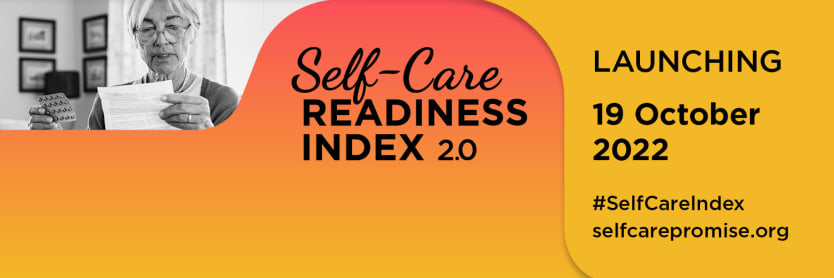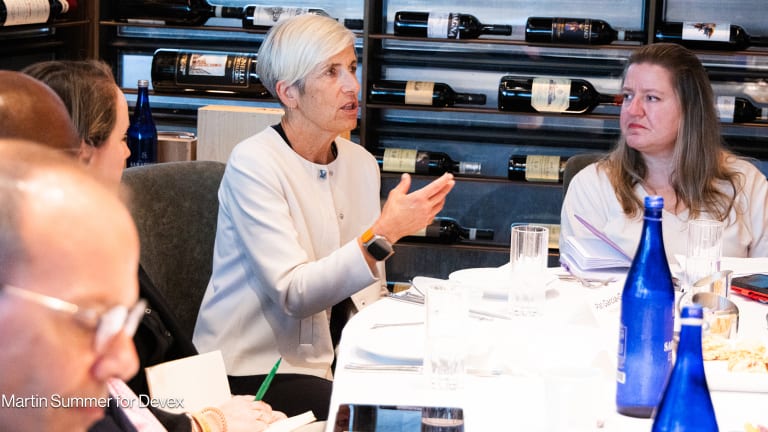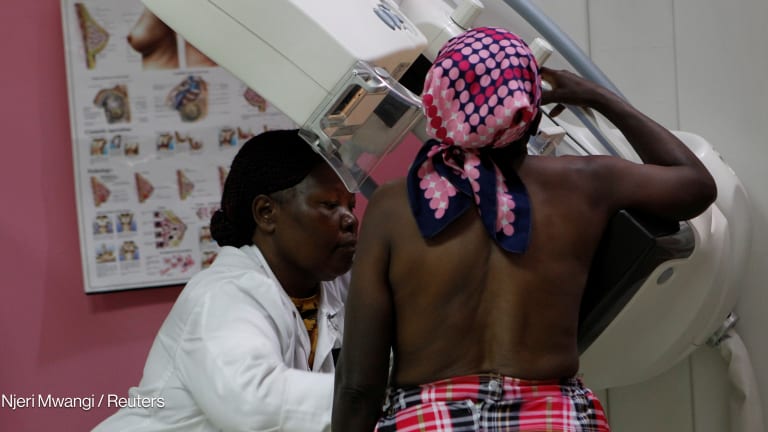
Health care takes on many forms around the world. We see different regions have distinct perspectives, observe a variety of best practices, and apply treatments or find solutions to health care problems that vary from each other. No matter where you are in the world, self-care will have a role in the health care system.
But, while awareness of self-care as a concept is growing, lack of clarity on its definition remains.
In some countries, such as Thailand and Germany, the term self-care is not part of the lexicon, though it is widely practiced. In others like Australia, “self-care” is used to describe everything from manicures to massages, alongside more direct health-related practices cited in the World Health Organization's definition of self-care.
So, when we talk about self-care, what do we mean? WHO defines self-care as “the ability of individuals, families, and communities to promote health, prevent disease, maintain health, and to cope with illness and disability with or without the support of a health worker.”
WHO recognizes the value of self-care. In its 2022 Guideline on Self-Care Interventions for Health and Well-Being, it acknowledges that “self-care interventions are among the most promising and exciting approaches to improve health and well-being, both from a health systems perspective and from a patient’s perspective.”
In research published earlier this year, a study on the Global Social and Economic Value of Self-Care, we found that self-care brings savings of nearly $120 billion each year for global health care systems. Alongside direct economic savings, self-care also saves approximately 40.8 billion productive days per year for practitioners and patients. That translates to approximately 11.83 workdays per person.
Opinion: The integral role of self-care in advancing UHC
WHO's Dr. Zhang Qi and Global Self-Care Federation's Judy Stenmark highlight the critical role of self-care in health care systems, with a specific spotlight on the value of traditional, complementary, and integrative medicines.
Despite the very clear benefits we see that self-care brings, it is apparent that there is a long way to go before we see the full integration of self-care into health care systems.
A global analysis
Self-care is multifaceted and multidimensional, and its key benefits are not universally understood. Perceptions are typically informed by societal values and cultural characteristics, rather than the logic of science or economics or by the proven beneficial outcomes.
At the Global Self-Care Federation, or GSCF, we recently concluded an update to our Self-Care Readiness Index, exploring the “self-care readiness” of an additional 10 countries spanning across each of the WHO world regions. The SCRI, first published in 2021 with an upcoming second edition in October 2022, is a research and policymaking tool that explores four key self-care enablers, supported by measurable indicators of self-care readiness.

The SCRI aims to highlight the commonalities that enable policymakers to design and implement more efficient models for health care systems. Bringing self-care into focus, so to speak.
The central tenet, and the focus of SCRI 2.0, is the importance of adopting policies that make self-care an integral part of any health care system. The study will show that the result will be more resilient health systems, delivering better health outcomes.
In the countries we looked at in the 2022 edition, we observed a variety of practices and attitudes around self-care. We see some universal challenges alongside hugely important emerging best practices that are taking shape. These will influence the wider adoption of self-care as we move forward.
Low- and middle-income countries take the lead
In 2021, we saw that low- and middle-income countries were more likely to utilize multidisciplinary care teams and empower practitioners such as pharmacists and community health workers to deliver care and educate patients on self-care behaviors. This was further confirmed in our research for the 2022 version of the Index.
These countries are striving to find appropriate ways for self-care to be included as part of the health care system and discourse. Bright spots include Thailand’s and Indonesia’s village health volunteer programs and South Africa’s cadre of community health workers, who bring knowledge about how to manage diabetes, hypertension, and other noncommunicable diseases to rural areas.
Whether we’re aware of it or not, self-care is a critical pillar of robust and holistic health systems and will continue to be in the future.
—Some countries, including Kenya and India, are currently reforming their health systems to establish more comprehensive primary care centers, where health promotion and prevention activities can be conducted more efficiently through multidisciplinary care teams — much like what has been done in Indonesia.
These sorts of decisions enable self-care to work effectively alongside other aspects of health care and ensure consistent improvements for the future of health.
Education brings us forward
We also see the importance of health education — specifically focused on increasing health literacy — across the globe. Leading the way in our analysis were Australia, Canada, and India, which each had robust curricula touching on key topics such as chronic and noncommunicable diseases, nutrition, physical activity, sleep, hygiene, substance abuse, mental health, and sexual health. Health-literate patients are empowered patients.
India’s National Health Strategy 2017 reformed the health and hygiene curricula in public schools across the country and introduced the concept of wellness and health ambassadors. The country’s operational guidelines establish age-appropriate health activities for schools from primary through to high school.
Health education initiatives do not only bring value to schools. In India, Kenya, Canada, and Colombia, health care providers and experts are calling for the creation of a new function within the health system where health educators would have a dedicated focus on health promotion, prevention, and patient education.
Good health is one of the main pillars of a good life. Whether we’re aware of it or not, self-care is a critical pillar of robust and holistic health systems and will continue to be in the future. The SCRI shows us that self-care is practiced differently and is included in health care systems in a variety of ways around the world. But despite these differences, similarities abound — notably around the fundamental benefits brought to patients, providers, and wider health care systems. Self-care cannot be ignored any longer — it is a hugely beneficial part of health care for all actors.
When we look at health care policies around the world, we see that self-care legislation is becoming increasingly common. Nevertheless, it is still disjointed — self-care is often not mentioned by name, though programs may touch on it — and it is often a policy lacking a coherent or holistic vision for the future. When appropriately deployed, self-care has the potential to help solve the world’s most pressing macro public health challenges.
No matter how we see it included, the benefits remain clear. Self-care needs to be an integrated part of every health care system.
Stay tuned for the full release of our SCRI 2.0, which will be launched at the GSCF World Congress in Cape Town on Oct. 19. To learn more about the event or the index, visit us at https://www.gscf2022.com/.








